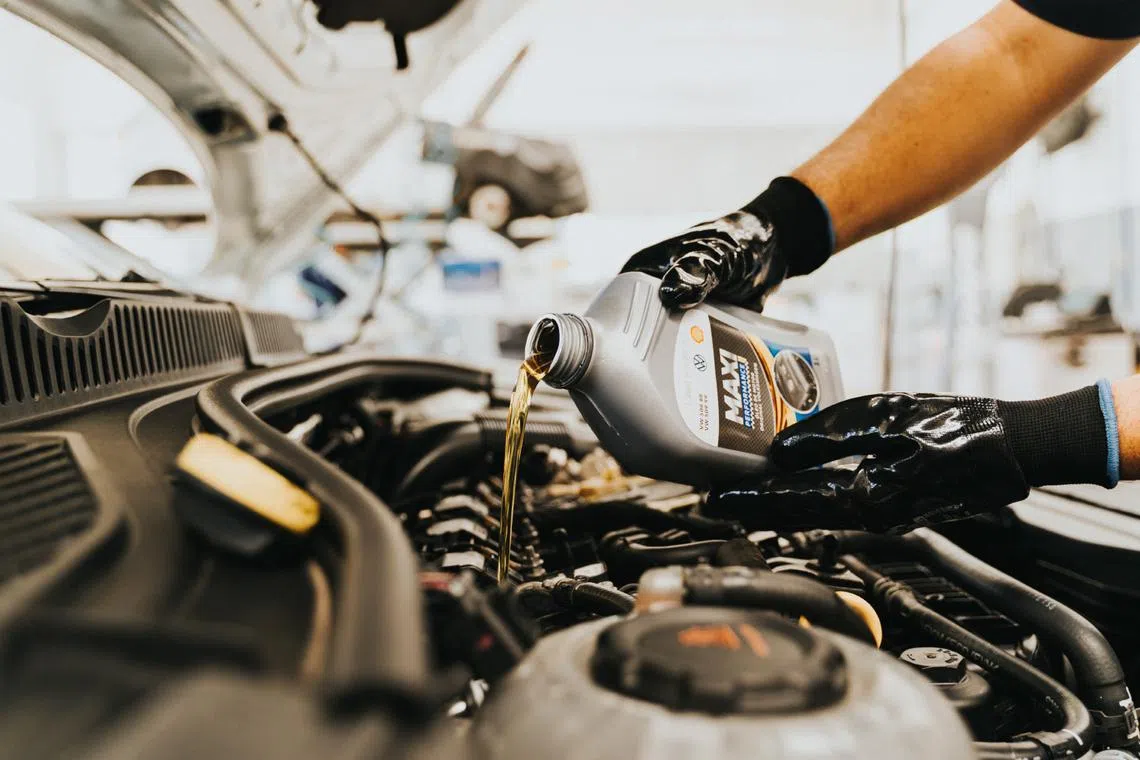Torque Shop: Older cars and engine oil
Sign up now: Get ST's newsletters delivered to your inbox

You might also want to consider replacing your vehicle’s engine oil with one of a slightly higher viscosity range.
PHOTO: PEXELS
My 17-year-old Toyota has begun to consume engine oil. Should I overhaul the engine or do I keep it going by topping up oil for as long as I can?
An increased oil consumption in a car that is 17 years old and presumably with mileage beyond 100,000km is quite normal.
While engine wear and tear is inevitable, the extent can vary depending on the history of the car’s maintenance routine, the quality of oil used and the owner’s driving style.
In any case, the symptom does not necessarily mean that an engine overhaul is the only remedy.
Worn piston rings, which will almost always result in visible smoke from the exhaust pipe, are not the only reason the engine would “burn” oil. Hence, the first thing to do is conduct a proper diagnosis to determine the most likely cause of the increased oil consumption.
Hopefully, a compression check that registers some healthy figures will eliminate piston rings as the main culprit.
In this case, the problem could be in the cylinder head. Weak valve seals and worn valve stems would allow oil to seep into the combustion chamber. In the early stages, there would not be any noticeable smoke at the tailpipes.
Replacing valve seals and guides is not a major job, and on a four-cylinder engine, this can usually be completed in a day. The condition of the piston rings can, to some extent, be checked while the cylinder head is off the engine block.
You might also want to consider replacing your vehicle’s engine oil with one of a slightly higher viscosity range. This is not a permanent solution, but helps mitigate oil consumption, especially in well-used engines.
Some workshops tend to replace engine oil with a lower-than-recommended viscosity grade during routine service.


